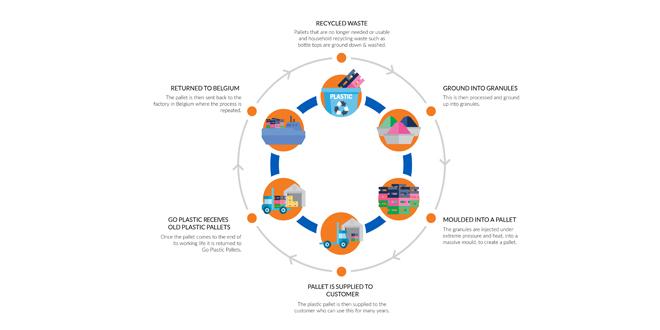The Rise of Micro-Credentials: Transforming Professional Development for the Modern Workforce
In today’s fast-evolving job market, the quest for continuous professional development and relevant skill acquisition is more urgent than ever before. Traditional degrees, while valuable, are no longer the sole currency for career advancement.Rather,micro-credentials are rapidly gaining popularity,offering targeted,flexible,and affordable pathways for upskilling. By enabling professionals to validate competencies in specific skill areas, micro-credentials are transforming the way individuals prepare for and navigate the demands of the modern workforce.
What Are micro-Credentials?
Micro-credentials are short, focused, and industry-recognized digital certifications that verify mastery of particular skills or knowlege areas. Unlike traditional degrees, which can span years and cover broad curricula, micro-credentials are competency-based and allow professionals to build a portfolio of skills tailored to their career goals.
- Short duration: Often completed in weeks or months rather than years.
- Stackable: Individual micro-credentials can be combined to create larger certifications or count towards degree credit in certain specific cases.
- Digital and Shareable: Usually issued as digital badges or certificates that can be easily displayed on LinkedIn profiles, resumes, or personal websites.
Why Are Micro-Credentials Gaining Popularity?
The accelerated pace of technological change and shifting employer expectations mean skills acquired even a few years ago can quickly become outdated. The modern workforce needs solutions that are:
- Flexible: Accommodating working professionals who need learning options that fit around their schedules.
- Relevant: Aligned wiht current industry needs and emerging technologies.
- Accessible: Cost-effective and frequently enough available online, making them attainable for a broader range of learners.
By addressing these criteria, micro-credentials empower individuals to remain competitive in their fields. Actually, according to a Burning Glass Technologies study, nearly 40% of adults are considering micro-credentials to gain new skills and advance their careers.
Key Benefits of Micro-Credentials for Professionals
1. Career Agility and Employability
Earning micro-credentials demonstrates a commitment to continuous learning and adaptability. Employers increasingly value candidates who can quickly upskill and apply new knowledge to solve real-world problems.
2. Personalized Learning Pathways
Micro-credentials enable professionals to curate their own learning journeys, focusing on areas most relevant to their career aspirations. This customization contrasts with the one-size-fits-all approach of many traditional educational programs.
3. Cost and Time Efficiency
Compared to traditional degrees, micro-credentials are more affordable and require less time investment. This lowers the barriers for career changers, returners to the workforce, and those seeking fast upskilling.
4. Enhanced Digital Recognition
Digital badges associated with micro-credentials can be easily integrated into online professional profiles, increasing a candidate’s visibility with recruiters and hiring managers.
How Employers Are Leveraging Micro-Credentials
forward-thinking organizations recognize the value of micro-credentials in workforce development. Key applications include:
- Targeted Employee Training: Addressing specific skill gaps through on-demand learning modules.
- Internal Mobility: enabling employees to reskill or upskill for promotions and new roles.
- Attracting Top Talent: Highlighting support for lifelong learning as a competitive advantage in recruitment.
According to a 2023 Deloitte report, over 60% of large companies are already integrating micro-credentials into their learning and development strategies, especially in fast-changing sectors like IT, healthcare, and finance.
Practical Tips: How to Select Micro-Credentials That Boost Your Career
- Assess Industry Relevance: Prioritize micro-credentials recognized by major industry associations or employers in your field.
- Verify Accreditation: Choose programs offered by reputable institutions, universities, or platforms with quality assurance processes.
- Stack or Specialize: Consider stackable pathways to build broader expertise or focus on specialized, in-demand areas.
- Share and Promote: Display your digital badges on LinkedIn and your resume to maximize visibility.
- Seek Employer Support: Many employers will sponsor or reimburse professional development; inquire about your company’s learning benefits.
Case Studies: Accomplished Implementation of Micro-Credentials
1. IBM digital Badges Program
IBM’s global digital badge initiative has issued millions of micro-credentials to employees and external learners. Employees who completed relevant digital badges reported greater confidence in applying new skills, and IBM saw improved agility in redeploying talent for high-demand projects.
2. Arizona State University (ASU) and Starbucks Partnership
ASU’s online learning platform, in partnership with Starbucks, offers employees access to stackable online micro-credentials. This program has enabled thousands of baristas to upskill while working, enhancing retention and progression into management or new roles within the company.
3. Google Career Certificates
Google’s Career Certificates provide jobseekers with micro-credentials in high-demand fields like IT support, data analytics, and UX design.Graduates have found success in gaining entry-level positions, bypassing the need for a traditional four-year degree.
“Micro-credentials have been a game-changer for my career. They allowed me to pivot into data analytics within months, opening doors to roles I never considered before.”
— Maria gonzales, Data Analyst and Micro-Credential Graduate
Future Trends: The Evolving Landscape of Micro-Credentials
- Integration with Formal Degrees: Universities are increasingly recognizing micro-credentials as credit-bearing modules.
- Growth in Corporate adoption: more companies will embed micro-credentials into onboarding and career development programs.
- AI and Data-Driven Learning: micro-credential platforms are leveraging artificial intelligence to tailor learning paths and match skills gaps with workforce needs.
- Global Portability: Standardized digital badges will improve cross-border recognition of skills, supporting international mobility.
Conclusion: Embrace the Future of Professional Development
The rise of micro-credentials marks a paradigm shift in the world of professional development. By providing accessible, relevant, and flexible skill-building opportunities, micro-credentials are democratizing lifelong learning and empowering individuals to thrive in rapidly changing industries. Whether you’re seeking a promotion, considering a career pivot, or simply aiming to future-proof your expertise, micro-credentials offer a powerful and practical solution.
As organizations and educational institutions continue to evolve alongside the modern workforce, those who embrace micro-credentials will be best positioned to seize new opportunities and lead the way in a dynamic global economy.

